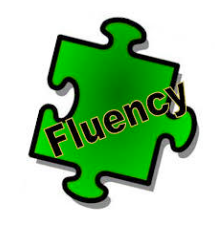What is Fluency? When Does It Matter?
- Jordan Stackhouse

- Jul 31, 2023
- 3 min read
Greetings friends, fellow language learners, adventurers, and teachers!

Hello from Chandigarh, India! We are are well and hope you are too! We recently participated in a round-table conference for business start-ups in the Punjab. Ruth won first prize for her presentation! We learned a lot and made some excellent contacts. This conference was very useful to us as we are develop our services here for the local market, particularly IELTS training. So many great people are applying to get study visas abroad but are struggling to pass the English proficiency requirements, so we are looking to train local teachers to improve their skills in order to help candidates pass the tests. There is a huge market for IELTS coaches here and in every English speaking country where people are applying to immigrate. We can help you get the skills to specialize in this field. Teaching English or any other language in which you are proficient is a fantastic way to support yourself at home or abroad. Join us soon on our online modular course and get trained and certified as a Language Instructor. When you register with a friend, you can both get $50 CAN off the fee. Both you and your friend(s) will need to register separately and choose the same day and time for your initial class. At checkout, each can use this coupon code STUDYBUDDY to get the discount. Feel free to contact us at info@lexica.world for more information.

What is Fluency? When Does It Matter?
The definition of fluency, like art, lies in the eye, or rather, the ear of the beholder. Eva Sandoval notes in her internet article, “How do we measure language fluency?” that fluency has been defined as being “native-level proficient.” Daniel Morgan -head of learning development at the Shenker Institutes of English – says that fluency actually refers to how “smoothly” and “efficiently” a second language (L2) speaker can speak on “a range of topics in real time.” In other words, can the L2 be understood, and how clearly?
Being understood does not always demand accuracy since the native speaker can often correct what they hear in real time. For example, if someone says: “He go bank;” “I hungry;” or “Where shopping?” the native speaker can usually understand and respond. If the L2 simply wants to communicate in social settings, then he/she may be satisfied with this level. However, if the speaker needs to communicate for business, or wishes to develop more complex relationships, then he/she will need to improve his grammatical range. Clear tools for assessment of Common Reference Levels for language learners can be obtained from The Common European Framework of Reference for Languages (CEFR) website at
https://www.coe.int/en/web/common-european-framework-reference- languages/level-descriptions
According to research from the University of Cambridge English Language Assessment, it takes 200 guided hours for a motivated learner to advance from one level to the next. The key word is “motivated.” Keeping a student motivated to push through the plateaus of their language learning odyssey and reach the next level requires those tasked with guiding them to maintain the student’s attention and momentum at all times. At Lexica we are dedicated to helping teachers learn and use over 30 different methods to propel their students over all language comprehension hurdles and help each student reach their individual fluency goal.

We would love to hear how you are doing and how we can help you reach your goals. Please feel free to contact us at jordan@lexica.world or follow our Instagram account “travel.simplify.teach”.








Comments